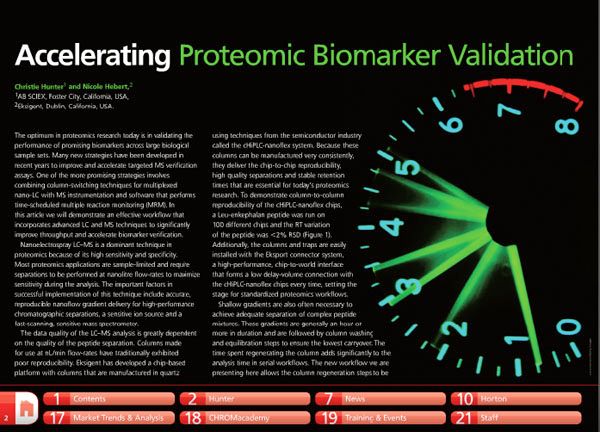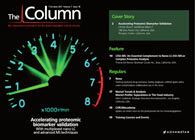Accelerating Proteomic Biomarker Validation
The optimum in proteomics research today is in validating the performance of promising biomarkers across large biological sample sets. Many new strategies have been developed in recent years to improve and accelerate targeted MS verification assays.
The optimum in proteomics research today is in validating the performance of promising biomarkers across large biological sample sets. Many new strategies have been developed in recent years to improve and accelerate targeted MS verification assays. One of the more promising strategies involves combining column-switching techniques for multiplexed nano‑LC with MS instrumentation and software that performs time-scheduled multiple reaction monitoring (MRM). In this article we will demonstrate an effective workflow that incorporates advanced LC and MS techniques to significantly improve throughput and accelerate biomarker verification.
Extracting Estrogenic Hormones Using Rotating Disk and Modified Clays
April 14th 2025University of Caldas and University of Chile researchers extracted estrogenic hormones from wastewater samples using rotating disk sorption extraction. After extraction, the concentrated analytes were measured using liquid chromatography coupled with photodiode array detection (HPLC-PDA).
Polysorbate Quantification and Degradation Analysis via LC and Charged Aerosol Detection
April 9th 2025Scientists from ThermoFisher Scientific published a review article in the Journal of Chromatography A that provided an overview of HPLC analysis using charged aerosol detection can help with polysorbate quantification.
Removing Double-Stranded RNA Impurities Using Chromatography
April 8th 2025Researchers from Agency for Science, Technology and Research in Singapore recently published a review article exploring how chromatography can be used to remove double-stranded RNA impurities during mRNA therapeutics production.










